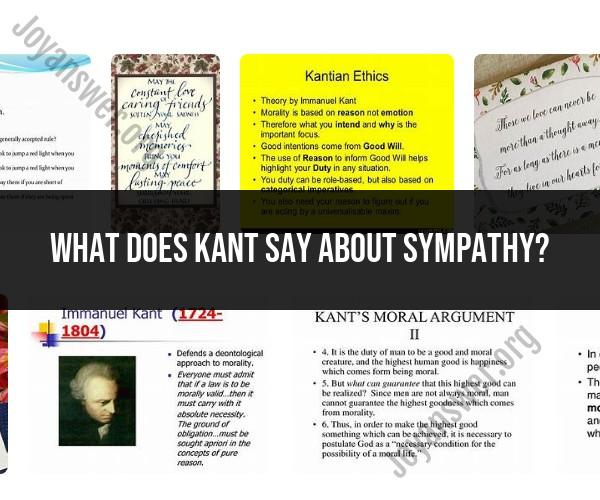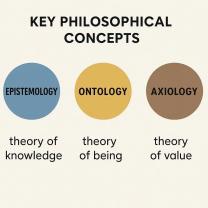What does Kant say about sympathy?
Immanuel Kant's moral philosophy, often associated with deontology and the categorical imperative, places less emphasis on sympathy and emotions compared to some other ethical theories. Kant's moral theory is primarily rational and duty-based, focusing on principles and rationality rather than emotions or feelings. However, Kant did have a perspective on sympathy, which he discussed in the context of morality and moral motivation.
Moral Motivation and Sympathy: Kant recognized that sympathy and feelings of compassion or empathy are natural human emotions. However, he believed that moral actions should not be driven solely by sympathy or emotions. According to Kant, moral actions should be motivated by a sense of duty and the moral law itself, as determined by rationality and the categorical imperative.
Moral Worth vs. Inclination: Kant made a distinction between actions done from a sense of duty and actions done from inclination or natural feeling. Actions done out of sympathy or inclination, while praiseworthy, do not have moral worth in Kant's view. Moral worth is attributed to actions that are done solely because they are in accordance with moral principles and duty, even when they conflict with personal inclinations or emotions.
Universalization and Rational Principles: Kant's moral philosophy, as outlined in the categorical imperative, requires individuals to act based on maxims (personal principles) that could be consistently willed as a universal law. This universalization process is a rational and principle-based approach to moral decision-making that is independent of personal emotions or feelings.
Good Will: Kant believed that the highest moral good is a "good will," which is the will to do what is morally right for its own sake, not for any other motive, including sympathy or personal gain.
In summary, while Kant acknowledged the existence of sympathy and natural emotions, he argued that moral actions should not be driven by these emotions. Instead, he advocated for a rational and principled approach to morality, where individuals act out of a sense of duty and in accordance with rational moral principles. Kant's perspective on sympathy reflects his emphasis on the autonomy of rational moral agents and the universalizability of moral principles, regardless of emotional inclinations.













